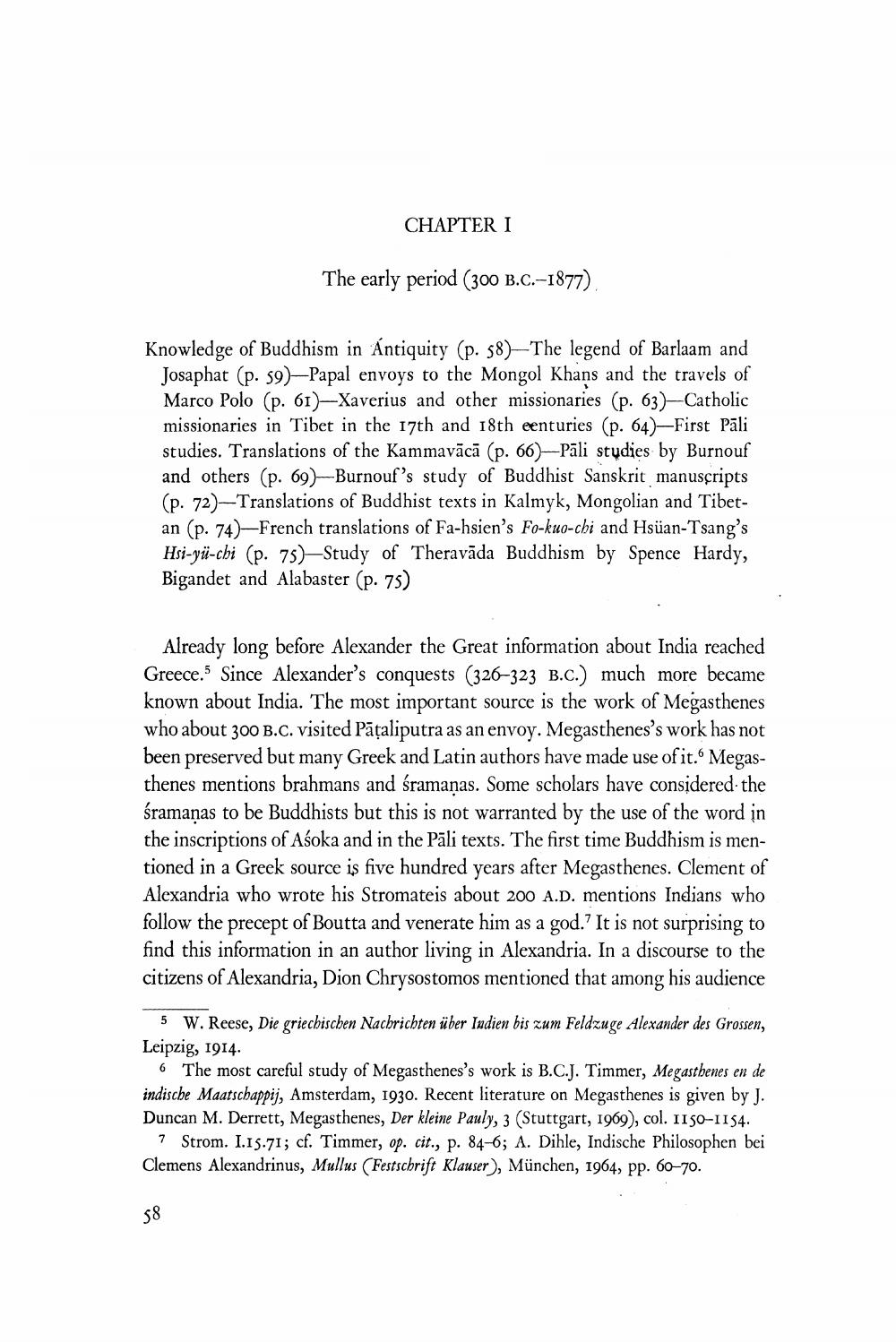________________
CHAPTER I
The early period (300 B.C.-1877)
Knowledge of Buddhism in Antiquity (p. 58)-The legend of Barlaam and
Josaphat (p. 59-Papal envoys to the Mongol Khans and the travels of Marco Polo (p. 61)--Xaverius and other missionaries (p. 63)-Catholic missionaries in Tibet in the 17th and 18th centuries (p. 64)-First Pāli studies. Translations of the Kammavācā (p. 66)--Pāli studies by Burnouf and others (p. 69 )--Burnouf's study of Buddhist Sanskrit manuscripts (p. 72-Translations of Buddhist texts in Kalmyk, Mongolian and Tibetan (p. 74)-French translations of Fa-hsien's Fo-kuo-chi and Hsuan-Tsang's Hsi-yü-chi (p. 75)—Study of Theravāda Buddhism by Spence Hardy, Bigandet and Alabaster (p. 75)
Already long before Alexander the Great information about India reached Greece. Since Alexander's conquests (326-323 B.C.) much more became known about India. The most important source is the work of Megasthenes who about 300 B.C. visited Pāțaliputra as an envoy. Megasthenes's work has not been preserved but many Greek and Latin authors have made use of it. Megasthenes mentions brahmans and sramanas. Some scholars have considered the śramanas to be Buddhists but this is not warranted by the use of the word in the inscriptions of Asoka and in the Pāli texts. The first time Buddhism is mentioned in a Greek source is five hundred years after Megasthenes. Clement of Alexandria who wrote his Stromateis about 200 A.D. mentions Indians who follow the precept of Boutta and venerate him as a god. It is not surprising to find this information in an author living in Alexandria. In a discourse to the citizens of Alexandria, Dion Chrysostomos mentioned that among his audience
5 W. Reese, Die griechischen Nachrichten über Indien bis zum Feldzuge Alexander des Grossen, Leipzig, 1914.
6 The most careful study of Megasthenes's work is B.C.J. Timmer, Megasthenes en de indische Maatschappij, Amsterdam, 1930. Recent literature on Megasthenes is given by J. Duncan M. Derrett, Megasthenes, Der kleine Pauly, 3 (Stuttgart, 1969), col. 1150-1154.
7 Strom. I.15.71; cf. Timmer, op. cit., p. 84-6; A. Dihle, Indische Philosophen bei Clemens Alexandrinus, Mullus (Festschrift Klauser), München, 1964, pp. 60–70.
58




